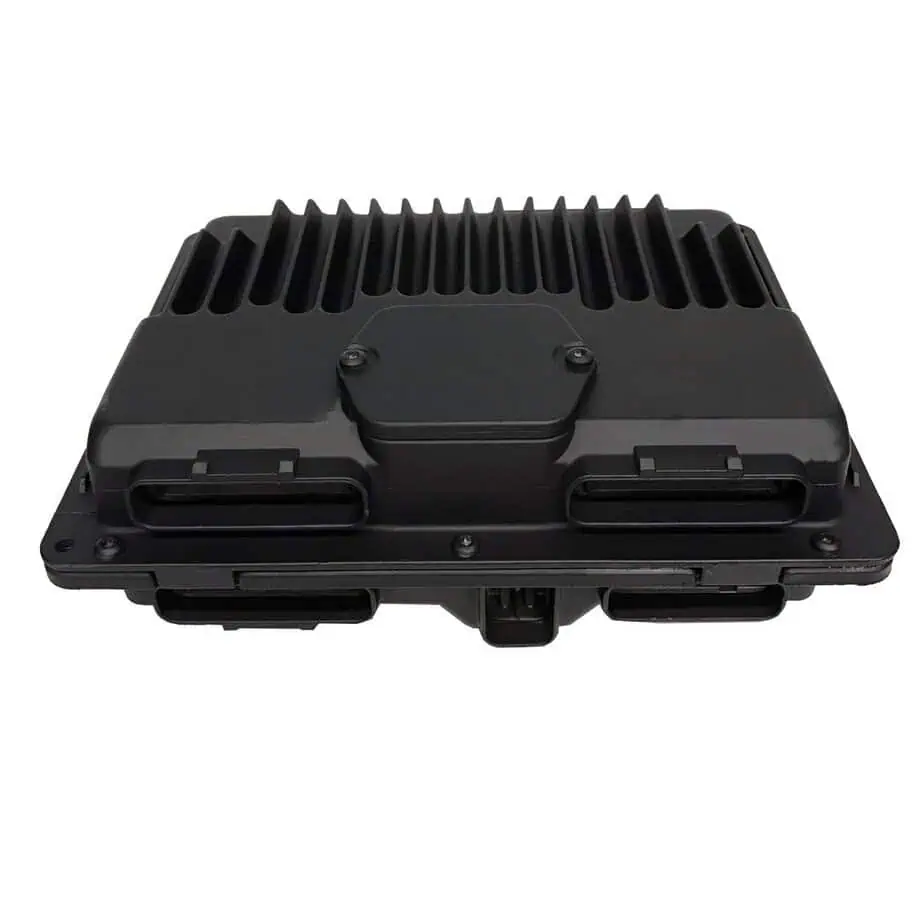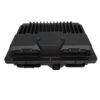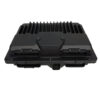Restore Your Vehicle’s Performance and Reliability
Is your Chevrolet Express, GMC Savana, or other compatible GM truck experiencing perplexing issues like a persistent check engine light, rough idling, poor fuel economy, or even a no-start condition? These are classic signs of a failing Powertrain Control Module (PCM), the central computer that manages your vehicle’s engine and transmission. This replacement PCM, part number 16263494, is the definitive solution to restore your vehicle’s original performance and dependability. We take the guesswork out of the repair by programming the module specifically to your vehicle’s VIN, ensuring a seamless installation and proper function right out of the box.
The Critical Role of the Powertrain Control Module
Think of the PCM as the brain of your vehicle’s powertrain. It constantly receives data from sensors throughout the engine and transmission—monitoring everything from engine speed and throttle position to oxygen levels in the exhaust. It then uses this information to make millions of calculations per second, precisely controlling fuel injection, ignition timing, transmission shift points, and emissions systems. When the PCM begins to fail, these critical calculations become erratic, leading to a cascade of performance problems that can be difficult to diagnose. Replacing a faulty module with a correctly programmed unit is essential for a smooth, efficient, and reliable driving experience.
From the Diagnostic Bay
We once had a 2001 GMC Sierra with the 4.3L V6 come into the shop with a complaint of intermittent stalling and a check engine light that previous mechanics couldn’t solve. They had replaced the spark plugs, wires, and even the fuel pump, but the problem persisted. Our diagnostic scan showed erratic data from the throttle position sensor, but the sensor itself tested fine. This pointed us toward the PCM. The internal circuits responsible for processing that sensor’s signal were failing. After installing a VIN-programmed PCM, we performed the security relearn procedure, and the truck ran perfectly. The customer was thrilled to finally have a reliable work truck again after months of frustration. It’s a perfect example of how a faulty module can mimic other component failures.
Symptoms of a Failing Express 1500 PCM
A failing PCM can manifest in numerous ways, often mimicking other mechanical or electrical issues. If you’re experiencing any of the following, your PCM is a likely culprit:
- ✔ Check Engine Light: The light is illuminated, often with communication-related trouble codes (U-codes) or multiple, seemingly unrelated sensor codes.
- ✔ Engine Stalling or Misfiring: The engine may stall unexpectedly while driving or at idle, and you may feel hesitation or misfires during acceleration.
- ✔ Poor Fuel Economy: A noticeable drop in your vehicle’s gas mileage can occur as the PCM fails to manage the fuel mixture efficiently.
- ✔ Harsh or Failed Shifting: The transmission may shift erratically, slam into gear, or fail to shift at all, as the PCM also controls transmission functions.
- ✔ No-Start Condition: In cases of complete failure, the PCM may not activate the fuel pump or ignition system, preventing the engine from starting.
- ✔ Failed Emissions Test: An inability to pass an emissions test is often directly related to a malfunctioning PCM not managing the vehicle’s emissions systems correctly.
VIN-Programmed for a Plug-and-Play Solution
Don’t settle for a generic, unprogrammed module that will require expensive dealer programming. Our process is simple and effective. After your purchase, you provide us with your vehicle’s 17-digit VIN. Our technicians then use this information to load the latest, most stable GM-approved software and calibrations directly onto the module. This ensures that the PCM is a perfect match for your vehicle’s specific engine, transmission, and options. For most applications, this makes the installation a plug-and-play process, getting you back on the road faster. This replacement Express 1500 PCM is the reliable way to fix your vehicle correctly the first time.
Frequently Asked Questions
Do I need to do any programming myself?
No. We handle all the programming before the module is shipped to you. All we need is your vehicle’s VIN to ensure it is loaded with the correct software for your specific configuration.
What is a CASE relearn and will I need to perform one?
A CASE (Crankshaft Angle Sensor Error) relearn is a procedure that synchronizes the new PCM with the engine’s crankshaft position sensor. On many of these GM vehicles, this procedure is required after installation. It can be performed by any mechanic with a capable bi-directional scan tool and typically takes only a few minutes.
How do I provide my VIN after purchase?
After you complete your purchase, you will receive instructions on how to send us your 17-digit VIN. You can typically reply to your order confirmation email or follow a link to a secure form. Please double-check the VIN for accuracy before sending.
Is this part truly plug-and-play?
Yes, because it is pre-programmed to your VIN, it is designed to be a plug-and-play installation. The only potential additional step is the CASE relearn procedure, which is a standard part of this repair for many compatible vehicles.
What happens if I install this without doing the CASE relearn?
If your vehicle requires the CASE relearn, the engine may run, but you will likely have a check engine light on with a P1336 trouble code. The procedure is necessary to clear this code and ensure the engine runs at optimal timing and efficiency.
This part fits many vehicles. How do I know it’s right for mine?
The most important step is to match the part number 16263494 (or one of the compatible numbers listed) to your old module. Then, confirm your vehicle’s year, make, and model are in our fitment list. Providing your VIN for programming is the final step that guarantees compatibility.


